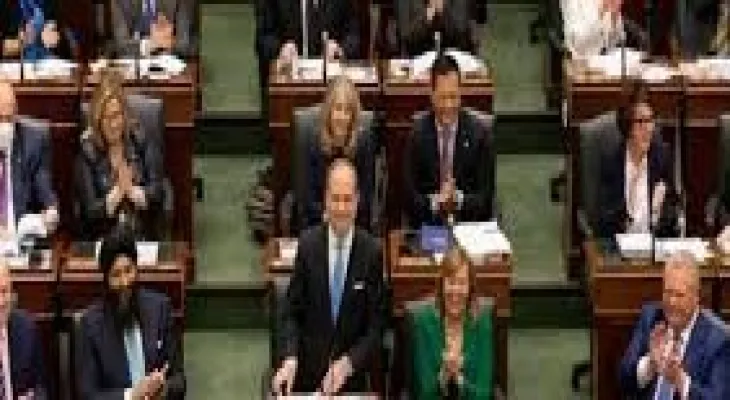Search here
Newspaper
Search here

Arab Canada News
News

Published: August 10, 2022
Ontario's 2022-23 deficit will be $1.1 billion less than expected three months ago, as tax revenues grew faster than rising interest costs on the province's bloated debt.
The province's latest financial disclosure shows that the deficit for this year now stands at $18.8 billion, down $1.1 billion from Ford's pre-election estimates.
Tax revenues rose by $1.2 billion, while the net debt servicing cost for the province's $427 billion debt increased by $105 million due to higher interest rates.
Finance Minister Peter Bethlenfalvy said all of the new net revenue will be put against the deficit, with no new funding yet to overcome the ongoing hospital closures crisis.
Ontario Finance Minister Bethlenfalvy added, "I think it's important to have a prudent and flexible plan moving forward and we've done that in this budget."
Not all expenditures changed from the April 28 budget that was officially re-tabulated in the legislature on Tuesday afternoon, except for a 5 percent increase in promised Ontario Disability Support Program (ODSP) payments during the election campaign and a new cash offer for parents.
The speech also included a pledge to provide more money to parents of school-aged children.
The province is allocating $225 million in grants to parents as a way "to help their children catch up" on learning affected by prolonged school closures during the COVID-19 pandemic.
Using 2021 spending estimates from similar programs, the funds range from $90 to $100 per child.
A spokesperson for the Ministry of Finance said the government is still unsure whether the money will be transferred to parents as a tax credit or a direct transfer, but Bethlenfalvy described it as a "direct payment."
Both new commitments will be funded from a $1 billion reserve and other emergency funds.
Bethlenfalvy said, "Parents who know their children best can provide the type of educational support their children need."
He answered repeated questions from reporters about why ODSP rates could not be increased further given the improved financial picture.
"I understand the environment is tough and challenging, which is why we pledged a five percent increase, which is why we pledged to adjust it with inflation, and we are one of only three provinces doing that."
The housing market recession that has been hectic in the province also affects provincial revenues, with land transfer tax revenues expected to be $787 million less this year than anticipated in late April.
This decline is offset by an increase in sales tax, income tax, and corporate tax revenues.
Interim NDP leader Peter Tabuns said the hospital situation and rampant inflation are serious enough that the province had to adjust its budget. "
Comments